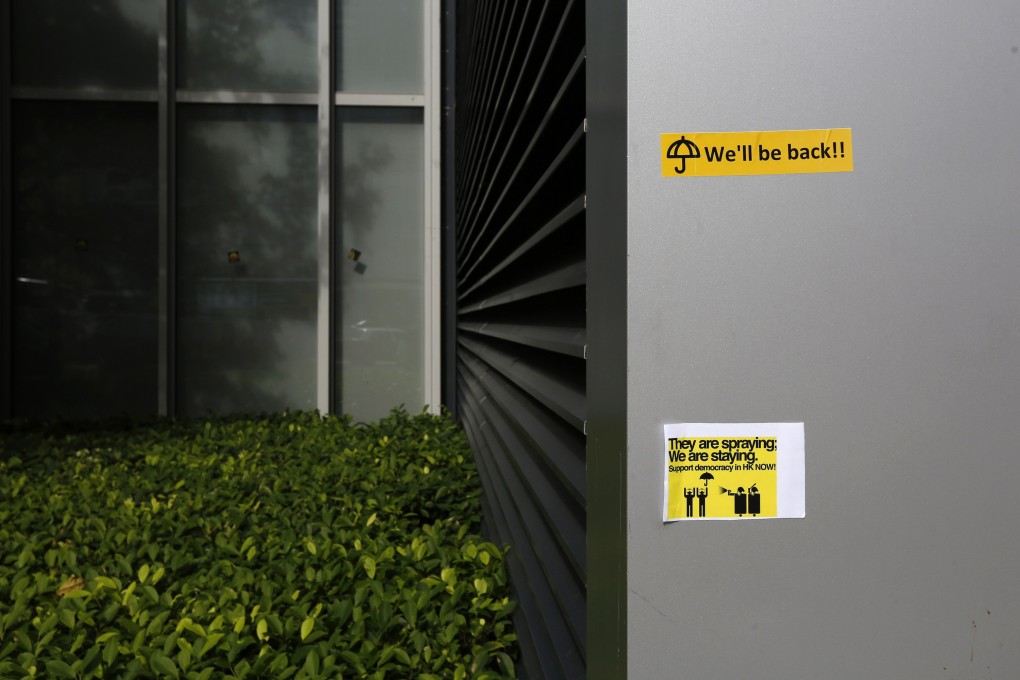Occupy protesters must pick their next battle wisely
Paul Letters says decision-makers would do well to start heeding demands of Hong Kong people

Cars now motor over the Admiralty expressway as though nothing has changed. The thousands of Post-it notes which constituted the Lennon Wall have been taken down, to be rebuilt one day in a virtual archive for posterity, to inspire street protesters of the future.
The mood at Admiralty during the forced retreat suggests many want that future to begin before the virtual paint dries in any archive gallery. Whereas "We'll be back" was the last-stand message at Admiralty, the pledge of Scholarism and the Federation of Students not to return in the short term makes sense.
At least in part, each protester is longing to take to the streets again, and the second stage of the public consultation on electoral reform, expected to begin soon, could provide a reasonable excuse. Aside from the politics, the spirit of kindness and sharing which so defined the protest community is reason enough to look forward to rebuilding Admiralty's tent town one day.
Anyone who spent time at the Admiralty protest site will know that it was a broad swathe of our community - not students alone - who sought competence, fairness and representation from Hong Kong's politicians. In the history of the special administrative region, the government has never looked so out of touch, and the police force has never been so tested.
In terms of integrity, among other things, both have lost out to a bunch of school kids, among other people. For 20 per cent of 2014, the political centre of the city was paralysed by extraordinary ordinary people of all ages.
Such thoughts should fester in government minds awhile, including throughout the second round of consultation, which is expected to last months. (The government has until July to introduce an electoral reform package for a vote in the Legislative Council.) Their week-to-week discussions and decision-making ought to include something new in the governmental process: "Is this what the public wants?" The new path set out for the democracy movement seeks to combat such malaise. Some commentators have emphasised that Hong Kong's socio-economic problems are more pressing than democratic reform. The poor grow relatively poorer, housing costs are unaffordable for most, and the public education Hong Kong children receive is low on quality. Collectively, such issues affect most Hongkongers, and, given meaningful political participation, the majority would not back policies favoured by big business and the ruling elite.
And the Hong Kong government has admitted as much. At least US presidential hopeful Mitt Romney acknowledged his error after his gaffe (in his 2012 campaign) that the 47 per cent of Americans who pay no federal income tax [because they are too poor] had a victim mentality of dependence on the government and should be ignored. Chief Executive Leung Chun-ying, however, has stood by his remarks that free elections in Hong Kong are undesirable because they would bring "poor people" politics.